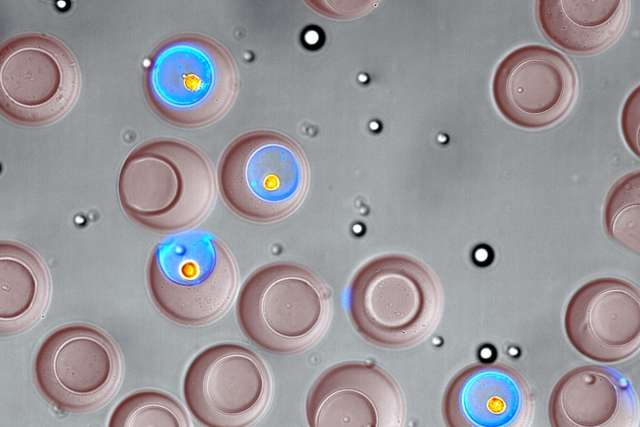Despite a growing interest in developing non-invasive methods to identify rare cancer cells or cancer cell DNA in blood, current techniques remain complicated and often prohibitively expensive. UCLA researchers have pioneered a more effective approach to these “liquid biopsies” that has the potential to offer a streamlined and low-cost solution for people with cancer.
The technology works by creating millimeter-scale whirlpools to draw in and concentrate circulating tumor cells, known as CTCs, based on their size. CTCs are often larger than normal blood cells, and their presence can be used to monitor disease. Analysis of these cells may provide critical information about which treatments will be most effective for an individual patient, and even may even indicate whether those receiving a particular therapy are likely to relapse.
“CTCs are extremely rare, so isolating them is a problem similar to finding a needle in a haystack,” said Dino Di Carlo, director of the Jonsson Comprehensive Cancer Center Nanotechnology Program Area and professor of bioengineering at the UCLA Henry Samueli School of Engineering. “Our filterless system avoids issues of previous technologies that clog and break cells apart, and we found this approach was more effective than technologies currently available at isolating cells from breast and lung cancer patients.”
The study is available online in the journal Oncotarget.
The research was supported in part by the NCI-IMAT Program, Office of Naval Research Young Investigator Program and Vortex Biosciences. Di Carlo and UCLA have financial ties to Vortex Biosciences.




